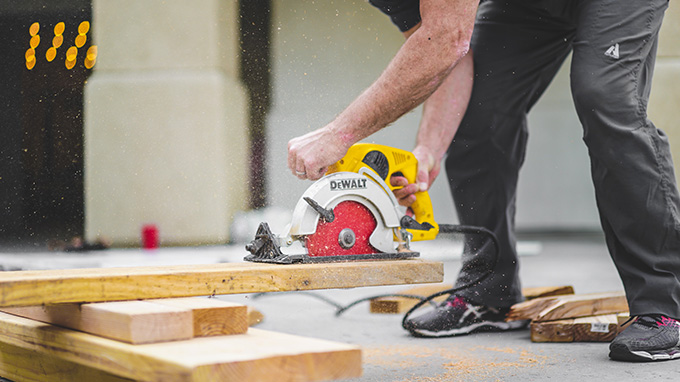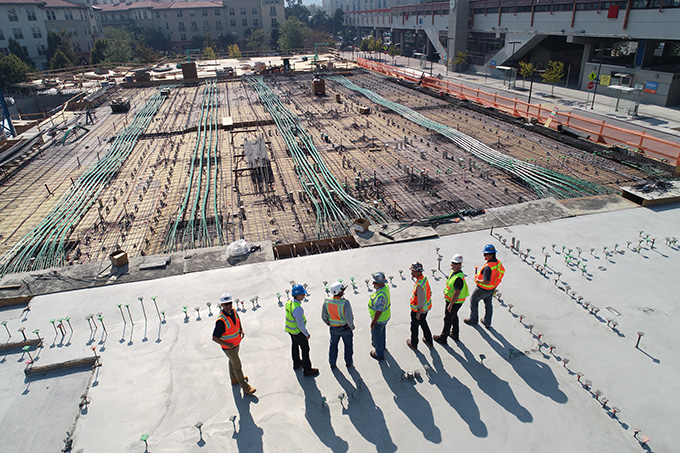
The construction industry is an ever-growing sector requiring more labor, machinery, and equipment to effectively get the job done. The construction equipment rental market increased by 75% in 2014 and is expected to shoot up to a 4% growth by 2024. The presence of proper equipment in a construction site can tremendously improve work productivity and enhance construction speed to meet deadlines. However, the process of scouring for construction equipment rentals can be bothersome. Here are a few fundamental guidelines and tips to consider when looking to rent construction equipment to help keep your mind at ease.
-
Determine What You Need
Construction is a fast-paced sector involving all manner of work. Figuring out the exact equipment you need is the first and most probable thing you should do. That said, there are many various models, types, and sizes of construction equipment on the market. This can range from Porta-Potties, loaders, and excavators. Below is a list of other standard construction rental equipment
- Graders
- Bulldozers
- Skid steers
- Track loaders
- Multi-terrain loaders
- Wheel loaders
- Backhoe loaders
As seen, the construction equipment can vary in terms of make and functionality. By determining your exact requirements, you can carry out the procurement process, and most importantly, set up a reasonable budget.

-
Create A Financial Plan
You’ve probably heard a ton of inspiring construction quotes from influential people in the society. However, the truth is no matter how motivating the quote may be, without enough capital, seeing your construction project to completion may be a never-ending dream. Whether you’re a large-scale firm or a start-up contractor, you need to understand the importance of a financial plan. While renting equipment is a cheaper alternative to purchasing your own, the cost of leasing it over a long duration can accrue exorbitant fees. A budget will help you understand your financial limit and prevent you from going overboard. Furthermore, it will show you which options are available to you and how long you can rent the equipment.
-
Additional Costs
One overlooked concept about construction rentals is the underlying costs associated with renting equipment. In addition to the standard leasing fees, there are delivery costs to be considered. The further away your site is from the supplier, the more the delivery cost. On the other hand, some delivery services may have a fixed delivery charge. Therefore, it’s essential to understand the terms and conditions before leasing construction equipment. Avoid rental suppliers who fail to outline any hidden costs that come with renting their equipment. Chances are, you’ll end up paying much more than you bargained for initially.

-
Select Your Rental Supplier
After establishing your construction equipment requirements and budget, you now need to settle for a rental supplier. This is where most of the headache and frustration comes. However, to ease the process, here is a checklist you can abide by
- Look for discounts and offers – Many suppliers will offer cheaper rates during some low season as not many constructors are looking to lease equipment.
- Select a supplier near you – Choosing a supplier closest to your location can alleviate a part of the delivery fees. However, if the price is the same, you can stick to an area with better rates, even if they are a bit further from your site.
- Consider an individual supplier – Private suppliers are more comfortable to negotiate. Most offer a reasonable rate without heaping in hidden costs.
- Search online – Online sites, such as eBay, Google, LinkedIn, and even Facebook, can provide you with relevant rental suppliers. This can save you from having to visit each seller as you can access photos and compare prices directly.
Why Should You Rent Construction Equipment?
Leasing construction equipment can provide numerous benefits for your company as well as a construction project such as
- Improved work performance
- Opportunity to try out new equipment models and technology
- No service or maintenance costs
- Cheaper than buying new equipment
- No limitation to the equipment you can access or lease
- Proper construction equipment management can lead to an increase in productivity
- No long-term storage costs
- Option to change equipment to match job requirements
- No depreciation costs

In Summary
Modern-day construction sites can be puzzling and a challenging endeavour. With the right construction equipment, you can effortlessly manage the difficult tasks that come with the job. Even if you don’t have your tools, consider seeking construction equipment rentals to help make your work easy.



